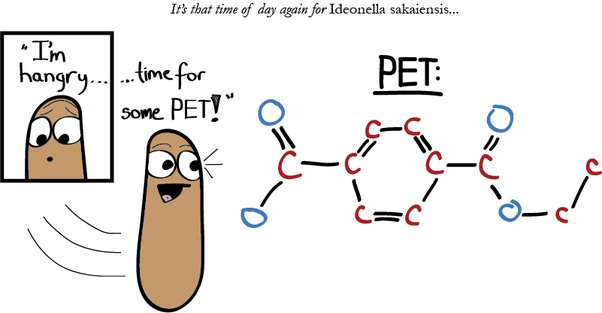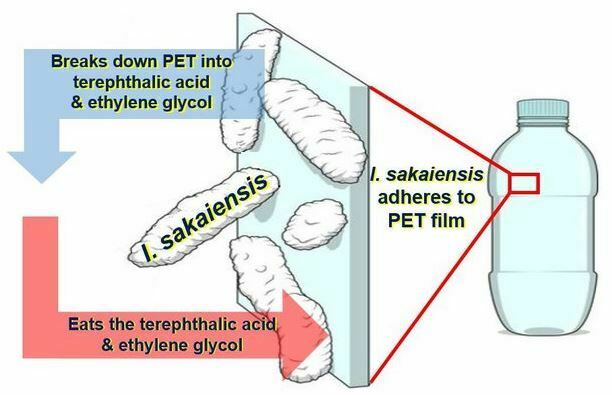Believe it or not, there are several different bacterial species that have been observed to eat non-degradable plastic and turn it into polyhydroxyalkanoate (or PHA). PHA is a polyester that is biodegradable. But before you get too excited about most of your dad’s neckties being biodegradable, keep this in mind: the bacteria are limited in how much it can produce PHA up to a certain percentage of its cell weight. For gram-negative strains, this could be up to 80% of the cell’s dry weight. But this would require an added process to eliminate endotoxins present in the outer membrane of these strains. Alternatively, gram-positive strains could be used to the same effect without the problem of endotoxins but with the tradeoff of a lower rate of PHA production. Some scientists are working on developing genetically engineered bacteria strains that offer no compromises. Either way, when the time comes that you enjoy some finely crafted Taco Bell with a spork made completely of bacterial waste products, you’ll be able to appreciate how much research went into these innovations in plastic recycling.

Plastics are polymers, long thin molecules made of repeating (monomer) building blocks. These are cross-linked to one another to build a durable, malleable mesh. Most plastics are made from carbon-based monomers, so in theory they are a good source of food for microorganisms.But unlike natural polymers (such as cellulose in plants) plastics aren’t generally biodegradable. Plastics have only been around for about 70 years. So microorganisms simply haven’t had much time to evolve the necessary biochemical tool kit to latch onto the plastic fibres, break them up into the constituent parts and then utilise the resulting chemicals as a source of energy and carbon that they need to grow. A team at Kyoto University has, by rummaging around in piles of waste, found a plastic munching microbe. After searching through 250 samples, they have isolated a bacteria that could live on poly(ethylene terephthalate) (PET), a common plastic used in bottles and clothing. They named the new species of bacteria Ideonella sakaiensis.

Advantages of the new discovered bacteria
- Easy to cultivate – Researchers left the PET in a warm jar with the bacterial culture and some other nutrients, and a few weeks later all the plastic was gone.
- Innovation – The team has identified the enzymes that Ideonella sakaiensis uses to breakdown the PET. They identified the gene in the bacteria’s DNA that is responsible for the PET-digesting enzyme.
They were then able to manufacture more of the enzyme and then demonstrate that PET could be broken down with the enzyme alone. The PET-digesting enzymes offer a way to truly recycle plastic. They could be added to vats of waste, breaking all the bottles or other plastic items down into into easy-to-handle chemicals.


